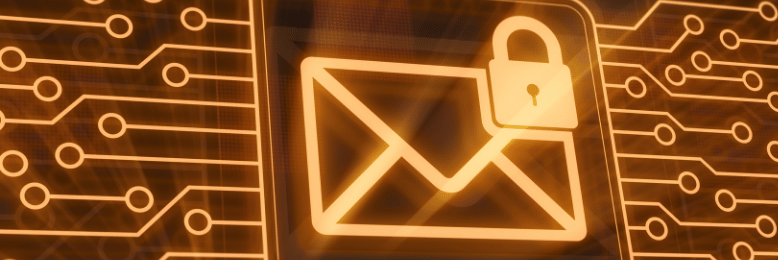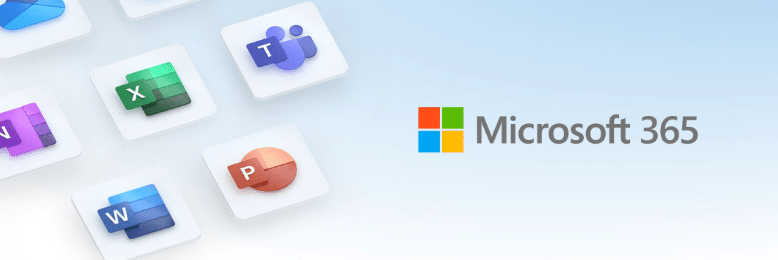What Is Email Encryption? Definition, Types and Benefits
August 2nd, 2021 | 4 min. read

Email encryption is a critical process in cybersecurity that ensures the exchange of sensitive data between users is safe and secure. Read this article to learn more about what email encryption is, how it works, and its benefits.
What Is Email Encryption? How It Works and Types

Pause for a moment and think about how many emails you receive and send in a weekday. Is it ten? Fifty? Over a hundred? That's right: it's a lot.
Email, indeed, remains to be the most widely used mode of communication in business. Users rely on emails to communicate with external suppliers, vendors, and colleagues, exchanging sensitive information and contracts with them through the medium.
The problem is, email is not secure by default. It is also the most common attack vector that cybercriminals use to exploit organizations. From phishing attacks to ransomware, email is frequently the delivery mechanism for today's most devastating cyber threats.
Email security solutions are the first line of defense against cyber threats. Another way to secure email is to apply encryption to it. Encryption is an effective way to secure emails to prevent cybercriminals from intercepting them in transit or while at rest.
The topic of email encryption often comes up in our conversations with clients here at Intelligent Technical Solutions (ITS). To ensure our client's secure communications, we implement email encryption using an Microsoft 365 plugin. As a managed IT provider, we manage the licenses for our clients to ensure their email encryption settings are correct.
This article talks about how email encryption works. We'll also touch on the reasons why your company needs to have it enabled.
How Does Email Encryption Work?

In cryptography, encryption converts the original message in plain text into an unreadable format called "ciphertext." The ciphertext is a complex character string that cannot be decoded without a password.
According to ITS Operations Director Peter Swarowski, there are various ways to implement email encryption. Let's take a look at each of these encryption methods.
Opportunistic Transport Layer Security (TLS)
With Opportunistic TLS, the message goes from the mail server to the final destination, from hop to hop, through an encrypted channel. The mechanism tries to secure the path for the messages in their journey to email systems. The message will revert to plaintext if the receiving server cannot accept encrypted messages.
Pretty Good Privacy (PGP)
PGP is a commonly used encryption standard that enables users to encrypt and decrypt emails and files using a session key known only to them. Security researchers, whistleblowers, and journalists often use PGP to send and receive secure communications that they cannot coordinate beforehand, according to Swarowski.
Third-Party Plugin
Typically, the encryption that companies deal with in the business scenario is through a third party. The third-party may create a plugin for Outlook where a user sends an encrypted message, and the recipient gets notified that they've received it. A link in the email may take the latter to a website that the third-party provider hosts and has some mechanism for them to authenticate.
Why Should You Encrypt Your Emails?

Email is one of those very old protocols developed early in the internet's infancy when security wasn't really thought at the time. It's one of those things similar to the file transfer protocol (FTP), where if you were to watch that traffic go by, you could potentially see the contents of that email in plaintext.
Changes have been made to email servers to try to mitigate that. When one server talks to another, it tries to do it over an encrypted channel, so someone snooping on the traffic wouldn't be able to see the contents of that email.
According to Swarowski, email encryption is required for compliance reasons by certain industries. Financial industries, for example, require email senders to forward sensitive financial information or personally identifiable information (PII) through encrypted means.
"If you send just a standard email, there's no guarantee that it wasn't viewed by anyone else. If you send it in an encrypted way, you can validate certain things," Swarowski said.
"For instance, when you send a license key, you can definitively say that the intended recipient redeemed it. These things matter a lot, especially in the regulation or legal space, where you have to do things in an industry-recognized way," he added.
Why Does ITS Support the Microsoft 365 Licenses for Email Encryption?

Email encryption is a powerful way to protect sensitive data in transit, but it must be configured correctly to work. To avoid potential security lapses, businesses should enlist the help of their managed service provider in overseeing their email encryption setup. ITS understands the technology, and it can guide business owners through the setup to make sure the Microsoft 365 email encryption license works for their needs.
Companies may not always understand the capabilities of the tool. Business owners may say that their IT provider set up this service, so it is important to ask them more clarifying questions to see if:
- they understand the features;
- the policy is adhering to their needs;
- they're fully leveraging the tool;
Additionally, there are instances where emails are not getting to the recipients because of a particular policy. Clients Companies may also want to know if they need to tick a specific option to satisfy a regulatory need or if there are exceptions that users can make for some policies. Your IT provider needs to be in the loop right from the beginning to provide proper support for these things.
Send Protected Messages with Encrypted Email
Email encryption is one of your best defenses against data loss caused by cyber attacks or human error. Encryption enables users to keep the contents of their emails private so no one, not even mail providers, can read them.
Microsoft 365 uses a combination of encryption methods to keep our clients' emails secure. ITS needs to manage Microsoft 365 licenses for clients to ensure that they are implementing the right policies and rule configurations.
Stay in control of your data with the help of ITS. As a managed service provider, ITS can help you set up your Microsoft 365 email encryption capabilities, manage compliance and simplify user management. Contact us today so our account managers can assist you.
Alessandra Descalso is an in-house content writer for Intelligent Technical Solutions. As a former journalist, her works have seen the pages of both local and international publications. She also has over a decade of experience in content writing, creating website copies, articles, and blogs for businesses and digital marketing teams from across the globe. She previously ran the financial news and PR teams at an advertising SaaS provider and recently served as a senior technology content writer at a digital marketing firm.
Topics:
